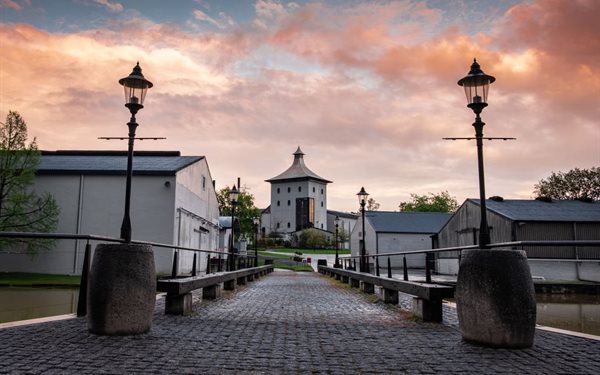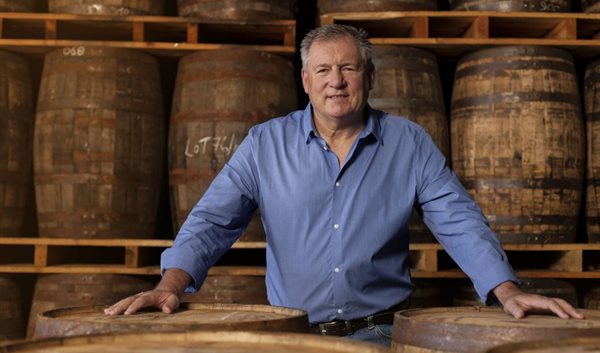
Top stories




Marketing & MediaCammy Msimango on finding her footing in South Africa’s fast-moving digital newsroom
Esther Tomorrow, MDNTV 1 day



The James Sedgwick Distillery, the only commercial whisky distillery in Africa, is not only home to the award-winning ranges of Three Ships Whisky and Bain's Cape Mountain Whisky, but it's being globally recognised for making sustainability an integral part of its business practice.
Most recently, the distillery scooped the Sustainability Leadership Award in the Business Intelligence Group (BIG) 2020 Sustainability Awards.
This is the second year running that the distillery has been recognised by the organisers of this global awards platform for integrating green practices into all aspects of the whisky-making process. In 2019 it was named Green Company of the Year for its commitment towards implementing a significantly more sustainable way of working.
Earlier this year, the James Sedgwick Distillery was also acknowledged by the international whisky community for its environmental efforts when it was named Sustainable Distillery of the Year at the International 2020 Icons of Whisky Awards.

Guided by the distillery’s environmental focus, green initiatives have been phased into operations since 1995, when the company installed an up-flow anaerobic sludge bed reactor (UASB) which allowed the distillery to pre-treat the distillery waste water before sending it to the municipal water treatment works.
Other sustainability practices that have been integrated over the years include recycling spent grains - which are high in protein - for animal feed, and the introduction of a reverse osmosis plant on site that treats the waste water in order for it to be re-used as boiler water. This has resulted in an approximate saving of 35% of the distillery's water requirements.
Here, distiller Andy Watts chats about global award wins and inspiring sustainable change in the liquor industry.
I regard it as one of the highest honours we can achieve. It’s a privilege to be recognised as a world leader for our focus on sustainability in the way that we work.
It has always been our aim to pave the way for other South African distilleries to be more conscious about their production processes, and for our success to provide the impetus for others to integrate green practices into their business operations. This is the reason why awards such as these are so vitally important - they spur us on to work harder and achieve more.
We took a conscious decision back in 2009, when the major distillery upgrade took place, that we would, where possible, introduce practices into our process which would reduce our impact on our environment and its resources.
I don’t think anything we are doing is “new” or has not been discussed or implemented elsewhere; however very few of the initiatives have immediate returns on the investment and I think that is what sets us apart…it was never about a return on the investment but in fulfilling a social and environmental responsibility.
To achieve what we have requires an interaction between the initiatives – and this is how we make a meaningful impact. The quote by Aristotle “the whole is greater than the sum of its parts” comes to mind in what we are trying to achieve.
In my mind without a doubt it is the volume of water we need to use. The entire process relies on water - be it for the mashing, fermentation, distillation, or the maturation stages. In 2017 and 2018 when the Western Cape was in the throes of a severe drought (some parts of the region still are) the distillery had to stop production for four months.
We had to totally rethink our approach with regard to the use of water, and again it was the right thing for the industry to do. The treatment of our wastewater firstly through an aerobic digestion process and then further through a reverse osmosis plant, allows us to re-use water in our boilers and cooling systems, resulting in a substantial reduction in water usage.
From my perspective the answer is quite simple…it is the right thing to do. Industry must take the lead in actively promoting and implementing the necessary processes to preserve our environment.
Unfortunately the cost of implementing such practices with no return on the investment is substantial, as I’ve mentioned before. There should be solid incentives in place to encourage businesses to follow best environmental practices.
I believe that consumers are increasingly motivated to be more environmentally conscious and are exercising their power and voice through the products they buy. I think that a businesses’ sustainability credentials are one of the key criteria that determines the consumers’ purchasing decision, especially with regard to the food and beverages they consume.
Providing that the product is not priced out of the market, my view is that many consumers will consciously support businesses that demonstrably care for the environment.
The Icons of Whisky Awards platform is recognised within the whisky industry as the ultimate global accolade. The whisky industry in our country stretches back to just over four decades, and to be acknowledged alongside established countries with centuries of whisky-making tradition is incredibly humbling.
This kind of recognition from our peers demonstrates that we are doing something right. The liquor industry in South Africa goes far beyond whisky and our hope is that these achievements inspire and motivate others to do, what at the end of the day, is the right thing!
